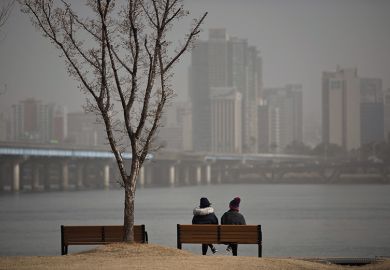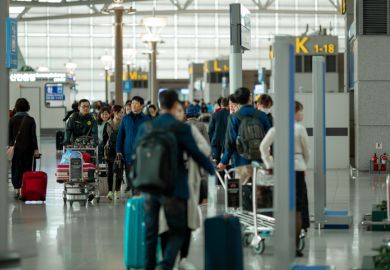New international agreements could boost South Korea’s faltering branch campus hub, but experts are doubtful that the zone can reach its lofty targets.
The “smart city” of Songdo, about 40km from Seoul, is home to Incheon Global Campus (IGC), a project by the Korean government initially envisaged as an international education hub for north-east Asia.
When the initiative was launched in 2012, it set out the goal of hosting 10,000 students and 10 international campuses by 2025.
Four international universities were established relatively swiftly after it launched, including the State University of New York (SUNY) Korea and Ghent University Global Campus. Stanford University has also set up a research centre. Since then, things have been relatively quiet, with student numbers slowly creeping up, surpassing 4,000 in 2024.
While it looks unlikely that IGC will reach its initial targets, signs are emerging that interest in the region has not stalled completely, with two new institutions interested in moving in.
The UK’s University of Southampton has confirmed that it is exploring “establishing a presence in South Korea” as part of a strategy “to develop a global network of campuses” and has signed a memorandum of understanding with Incheon city leaders. According to local media reports, the Mannes School of Music, a US college in New York City, is also involved in separate discussions.
Leaders of IGC’s foundation also signed an agreement with Indonesian officials in June to work together to attract more students from the archipelago to the branch campuses in a bid to boost low student numbers.
However, experts are doubtful that these initiatives will be enough to revive the struggling education hub. One of the problems, they say, is the lack of demand from students in a country with a rapidly declining population.
“Given the difficulties faced by the universities outside Seoul in attracting new students in Korea, it seems also limited for foreign universities to attract local students,” said Jun Hyun Hong, professor at the School of Public Service at Chung-Ang University.
Kyuseok Kim, project manager at edtech company UWAY and former team leader at SUNY Korea, agreed that this could put international universities off.
“Additionally, the stringent regulatory framework and bureaucratic hurdles that are mainly caused by multilayered governance between and among the different government organisations pose significant barriers, deterring foreign institutions from making substantial commitments,” he said.
“The perception of South Korea as a challenging market for transnational education, as highlighted by the failed attempts of UK universities some years ago, contributes to this reluctance.”
The University of Aberdeen abandoned plans in 2019 to open a branch campus in a different part of South Korea after being beset by financial and logistical difficulties, with the oil and gas industry downturn proving the final nail in the coffin.
Branch campuses also appear to be of limited strategic importance to policymakers, according to Professor Hong. “Rather, the government emphasises recruiting foreign students to local universities” in order to support labour market demands, he said.
“It appears that the international branch campuses in South Korea are little considered a strategic instrument to boost international students,” agreed Mr Kim, pointing out there was no mention of IGC in the government’s plan to recruit more international students, published last year.
Register to continue
Why register?
- Registration is free and only takes a moment
- Once registered, you can read 3 articles a month
- Sign up for our newsletter
Subscribe
Or subscribe for unlimited access to:
- Unlimited access to news, views, insights & reviews
- Digital editions
- Digital access to THE’s university and college rankings analysis
Already registered or a current subscriber?








